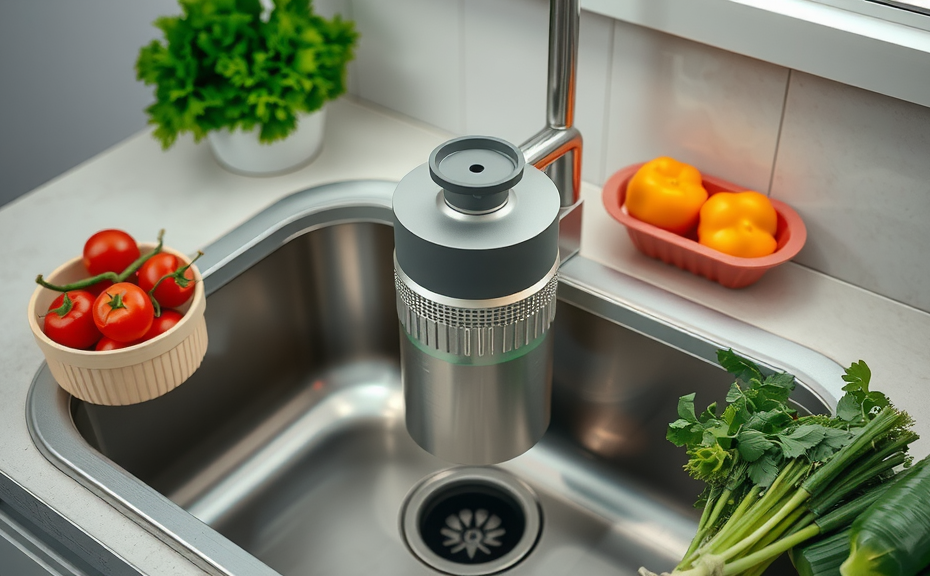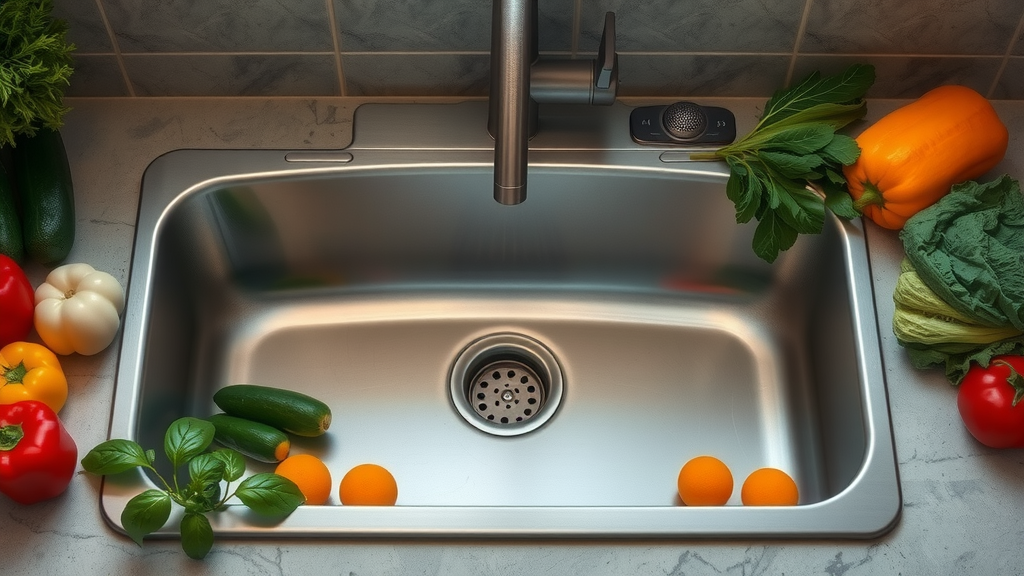The debate surrounding the use of food waste disposal units has prompted considerable scrutiny within numerous European jurisdictions.
This scrutiny stems from environmental regulations aimed at promoting sustainable waste management practices.
Countries such as Germany and Switzerland have established robust systems designed to handle food waste efficiently without the need for disposals.
These systems frequently incorporate separate collection of organic materials, which not only supports ecofriendly initiatives but also enhances recycling and composting efforts.
Consequently, certain areas have restricted or entirely eliminated the use of garbage disposals to foster these environmentally sound methods
Are Garbage Disposals Banned
Regulations surrounding the use of certain kitchen appliances vary significantly across different regions, reflecting diverse priorities in waste management. While many households utilize these devices, various countries have opted for restrictions or outright bans.
For example, Switzerland and Germany emphasize sustainability through recycling and composting methods, often discouraging reliance on appliances that could burden wastewater treatment systems.
Innovative regulations in these regions aim to improve local infrastructure while promoting environmental responsibility.
Notably, cities like San Francisco have implemented effective waste management strategies by encouraging alternatives, which not only enhance recycling efforts but also reduce the overall impact on sewage systems, showcasing a model that other locations may consider as they evaluate their own waste management regulations.
Understanding Waste Management Regulations
Effective management of waste plays a significant role in safeguarding public health and preserving the environment. Regulations outline the methods for handling waste, ensuring adherence to health standards while fostering sustainable practices within communities.
Local and governmental agencies contribute to crafting these guidelines, which may differ significantly across regions.
Key regulations encompass the disposal of household waste, targeting the prevention of contamination of water and land sources.
Notably, certain waste streams, including hazardous materials, face stricter regulations due to their potential risks to health standards. Awareness of these rules is crucial for minimizing negative impacts and encouraging community responsibility in waste disposal.
As discussions about garbage disposals arise, it’s important to consider how these regulations influence sanitary practices and the overall impact of food waste on the environment.
Impact Of Food Waste On Environment
The state of waste generated from uneaten food presents significant environmental challenges, affecting ecosystems and resource availability. Globally, approximately one-third of food produced is discarded, resulting in extensive greenhouse gas emissions when it decomposes in landfills.
During this process, methane, a potent greenhouse gas, is released and proves to be over 25 times more damaging than carbon dioxide over a century.
The water utilized for producing discarded food is substantial, with around 25% of freshwater used in agriculture being allocated to food that never reaches consumers.
Tackling this issue of biodegradable waste is essential, necessitating effective disposal methods and exploring alternative solutions to mitigate the related environmental impact. Transitioning from waste management regulations to exploring ecofriendly alternatives offers a pathway to address these pressing concerns effectively.
Exploring Ecofriendly Alternatives
Adopting sustainable practices has become increasingly important for mitigating environmental degradation. Waste disposal units designed with eco-friendly technologies significantly contribute to reducing landfill contributions.
These innovative approaches include composting, which efficiently transforms food scraps into nutrient-rich soil, and the use of biodegradable materials that naturally break down over time.
Interestingly, several regions have enacted regulations mandating composting to address the rising challenges posed by waste accumulation.
Such strategies not only conserve valuable resources but also enhance the health of surrounding ecosystems. Integrating green technology into kitchen practices can effectively minimize waste, with appliances that extend the shelf life of consumer products through advanced preservation techniques.
Sustainable Practices
- Composting can reduce landfill waste by up to 30% by transforming food scraps into usable soil.
- Biodegradable materials can break down in a matter of months, compared to hundreds of years for traditional plastics.
- Regions that mandate composting have reported improved soil health and reduced waste management costs.
- Green technology in kitchens can extend the shelf life of food, reducing overall waste by up to 50%.
How Do Kitchen Appliances Affect Sanitation
Effective sanitation practices within food preparation areas hinge significantly on the functionality of various kitchen appliances. These devices contribute to minimizing risks associated with foodborne illnesses.
For example, refrigerators are designed to maintain safe temperature levels, inhibiting bacterial growth on perishable items and promoting waste reduction.
Proper management of food waste is facilitated by garbage disposals, which help reduce odors and prevent pest infestations in the kitchen.
Challenges can emerge from improper usage. Dishwashers, for instance, may allow stagnant water to promote biofilm formation if not regularly cleaned.
Routine maintenance is vital to prevent buildup, ensuring regulatory compliance and enhancing overall kitchen hygiene. Transitioning to efficient waste disposal alternatives or implementing recycling programs can further elevate sanitation standards, creating a more sanitary cooking environment.
Benefits Of Waste Reduction Practices
Implementing effective strategies for reducing waste can significantly enhance environmental and societal well-being. Reduction in environmental impact: Minimizing waste contributes to decreased landfill use and lowers greenhouse gas emissions, which is crucial for mitigating climate change and reducing the overall carbon footprint.
Economic savings: Households and businesses experience lower disposal costs through waste minimization, while recycling initiatives can open revenue streams.
Enhancement of community health: Practices aimed at reducing waste have a direct positive impact on air and water quality, thus improving public health outcomes.
Innovation and job creation: Embracing these strategies fosters the development of new technologies, which can lead to the creation of green job opportunities. To further illustrate, adopting waste reduction methods can help minimize water usage, lower carbon footprint, improve public health, adhere to the waste hierarchy, and reduce overall ecological footprint.
Waste Reduction Strategies
- Reducing waste can decrease landfill use by up to 50%, leading to a significant reduction in greenhouse gas emissions.
- Households can save an average of $1,200 annually by implementing waste minimization practices.
- Improved air quality from reduced waste leads to a decrease in respiratory illnesses, benefiting community health.
- The green technology sector is projected to create over 9 million jobs by 2030, driven by waste reduction and recycling initiatives.
What Are The Waste Disposal Alternatives
Exploring alternative methods for waste management can significantly enhance environmental sustainability. These innovative techniques help minimize the volume of waste accumulating in landfills while promoting responsible resource usage.
For instance, compost bins facilitate the recycling of organic material, transforming food scraps and yard waste into rich soil amendments, which drastically reduces household waste.
Incineration, another method, transforms refuse into energy, generating power for households and businesses alike.
Effective waste separation practices further boost recycling initiatives, enabling a broader range of materials to be reclaimed and reused. Waste-to-Energy (WtE) technologies convert millions of tons of refuse into usable energy annually, proving beneficial in reducing landfill dependency.
Utilizing garbage grinders can also enhance waste reduction by efficiently processing food waste, making it easier for households to manage their refuse responsibly. Adopting these alternatives not only contributes to a cleaner environment but also sets the stage for innovative sanitation systems that promote zero waste through effective waste separation and the use of compost bins and garbage grinders.
The Role Of Recycling In Urban Living
Urban centers face significant waste management challenges due to the high volume of refuse generated daily. Effective waste management strategies can markedly enhance home efficiency and promote sustainable urban living.
For instance, comprehensive recycling programs in cities like San Francisco have successfully diverted over 80% of waste from landfills, highlighting the potential of well-structured initiatives.
These programs not only encourage the recycling of various materials but also foster a cultural shift towards environmentally conscious practices among residents.
Addressing the proper disposal methods for recyclable materials remains a pressing issue in urban areas.
Contamination of recyclable items can dramatically undermine the success of recycling efforts. To combat this, cities are implementing educational awareness campaigns that inform residents about acceptable disposal methods and the importance of sorting materials correctly.
Statistics indicate that cities actively engaging their communities in these initiatives see higher recycling rates and more effective waste management outcomes.
| City | Waste Diversion Rate |
|---|---|
| San Francisco | Over 80% |
| Community Engagement | Higher Recycling Rates |
| Contamination Impact | Undermines Recycling Success |
| Educational Campaigns | Improved Disposal Methods Knowledge |

